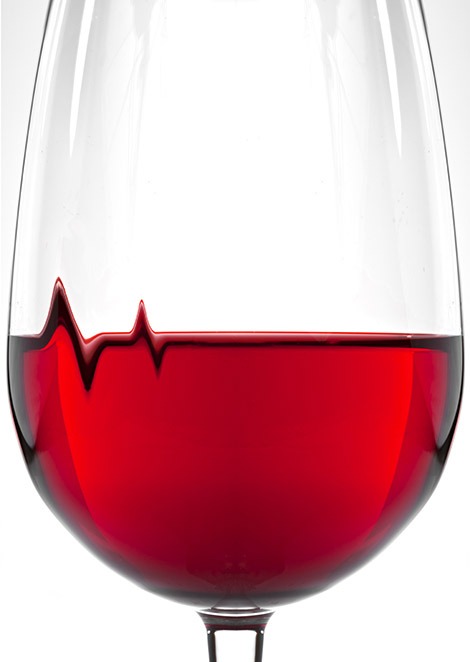You’ve probably heard that drinking red wine is good for your health, as people are quick to point out that indulgences like wine and dark chocolate contain health benefits.
Just like dark chocolate, it is true, but there are caveats.
Red wine is a typical part of the heart-healthy Mediterranean diet, so it could just be that people who drink red wine on this type of a diet are overall healthier due to their lifestyle and the foods that they eat.
But some studies have shown positive impacts of wine—the key, as it is with any indulgence, is moderation. Cooperstown Center for Rehabilitation and Nursing has a look at how wine can affect your cardiovascular health, both positively and negatively.
POSITIVE: Boosts Good Cholesterol
Light to moderate drinking (around one drink per day) has been found to raise good cholesterol (HDL) levels. For red wine in particular, polyphenols in the drink also may decrease bad cholesterol (LDL) in the blood.
POSITIVE: Reduced Risk of Blood Clots
Studies found that light or moderate wine drinking can help platelets in your blood become less sticky, reducing the risk of forming a blood clot that could lead to a heart attack or stroke.
NEGATIVE: Increased Risk for Arrhythmia
Arrhythmia is the technical term for an irregular heartbeat. Studies found that having more than two or three glasses of wine per day can increase the risk for an irregular heartbeat, which can lead to atrial fibrillation, atrial flutter, and other potentially dangerous conditions.
NEGATIVE: Raises Blood Pressure
Long-term alcohol use can increase your risk of hypertension (high blood pressure) by as much as 70% if you have 3-4 drinks per day. That number increases to 250% with extremely heavy consumption (7-8 glasses of wine).
To learn more about Cooperstown Center for Rehabilitation and Nursing and all of the services they offer, visit http://cooperstown-center.facilities.centershealthcare.org.






